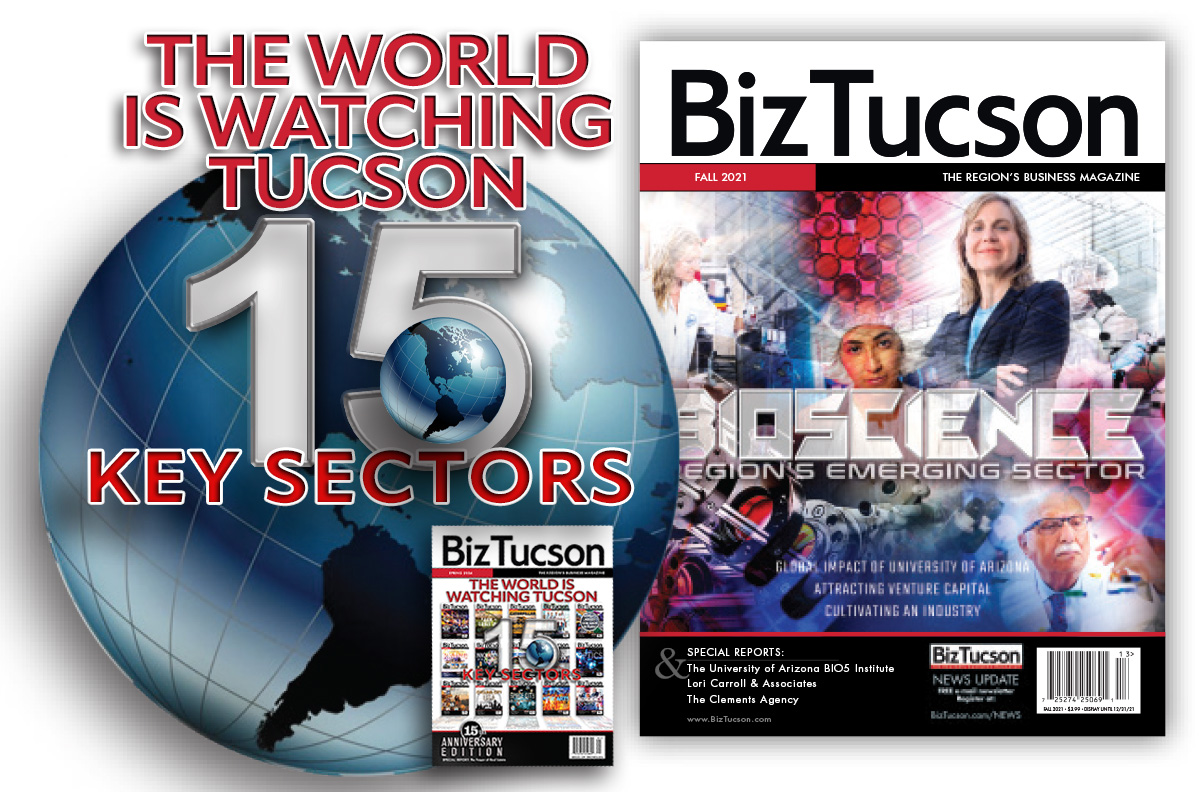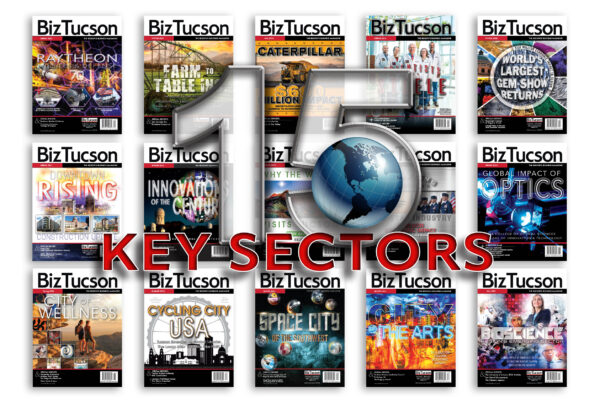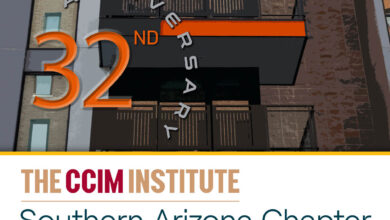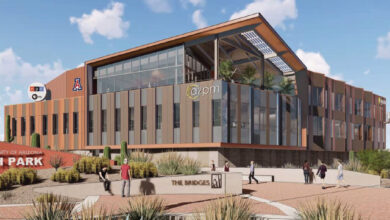
8. Bioscience Hub
By Rodney Campbell
Spurred by innovation, a spirit of collaboration and respected global leaders in the field, bioscience is thriving in Southern Arizona.
“Tucson is the next Austin, San Diego, Boston when it comes to biotech and biomedical industries,” UAVenture Capital CEO Fletcher McCusker told BizTucson in 2022.
The University of Arizona will be among the reasons why. It’s home to the BIO5 Institute, led by Director Jennifer Barton. A noted and respected researcher, Barton has overseen BIO5’s collaborative efforts in agriculture, engineering, medicine, pharmacy and science since 2015. BIO5 strives to solve humanity’s challenges in hunger, disease, food safety and more by bringing together world-class scientists to work together and find answers.
For example, BIO5 Professor George Sutphin’s lab studies the molecular basis of aging. Our graying population is increasingly an issue for quality of life and the economics of societal health. Understanding the molecular architecture that drives aging will reveal intervention points to extend healthy human lifespan, delay onset of age-associated disease and develop targeted treatments.
It’s just one of many issues that BIO5 is tackling by combining expertise from across campus.
“We know that it will take a diverse team to solve problems like cancer, diabetes, and Alzheimer’s, and to provide healthy nutrition to a growing population,” Barton said. “BIO5 provides the connections, cutting edge facilities, and seed support needed for our research to test ‘crazy’ ideas that break current thinking and lead to major advances.”
In an encouraging sign for the future of bioscience here, BIO5’s KEYS Research Internship program has seen a surge in applications for its summer cohort. The program received an unprecedented 430 applications from Arizona’s high school students aged 16 and older.
The internship program aims to inspire the next generation of scientists, offering a seven-week summer experience in which interns are mentored by UArizona faculty, gaining valuable knowledge and skills in STEM research, biotechnology, data science and science communication.
Roche Tissue Diagnostics’s solid presence here began with Ventana Medical Systems in 1985. Founded by UArizona pathologist Thomas Grogan in his garage, Ventana was acquired by Roche in 2008 for $3.4 billion. The bioscience giant has since maintained its base in Tucson and expanded its footprint over the past few years.
Grogan’s path toward creating what is now a global company in tissue diagnostics began in a pathology lab in the late 1970s. It was there that he began writing notes on a legal pad that would lead to the development of an automated process providing more concise diagnoses, saving precious time and countless lives.
Roche has since opened a 60,000-square-foot factory in Marana to increase production of its cancer-finding instruments in 2022, and just this last year, purchased the 112,500-square-foot former Icagen/Sanofi research and development facility adjacent to its campus.
The company continues innovating, recently adding to its comprehensive cervical cancer portfolio with a self-collection option in several countries. The advancement makes it easier and more comfortable for people to detect certain strains of human papillomavirus, which causes 99% of cervical cancer. Roche also obtained prequalification from the World Health Organization for the test, making this critical screening tool more widely available in low- and lower-middle income countries.
Additionally, Roche’s BenchMark ULTRA PLUS tissue staining system recently launched around the world, enabling pathologists to provide high-quality, time-critical results to doctors and patients. Roche also has entered an agreement with PathAI, a global leader in artificial intelligence-powered technology for pathology. PathAI will exclusively work with Roche to develop AI-enabled digital pathology algorithms in the companion diagnostics space.
Another Tucson success story in bioscience is the Critical Path Institute, a global, nonprofit organization founded here in 2005 by Dr. Raymond Woosley to accelerate drug development. In addition to its Tucson headquarters, C-Path’s European headquarters are based in Amsterdam.
The creation of C-Path was inspired by Dr. Janet Woodcock, principal deputy commissioner for the Food and Drug Administration. She believed that regulatory science should include collaboration between regulators, the industry, academic scientists and communities.
“I had the pleasure of working with Janet to launch the highly successful Critical Path Institute,” Woosley said, at the 2005 dedication. “Based in Arizona, C-Path operates globally with programs and collaborations across the U.S., Europe, Japan, and beyond.”
Now led by new CEO Dr. Klaus Romero, a longtime regulatory science expert, C-Path recently launched a revamped website to further enhance collaboration in drug development. The platform reflects C-Path’s commitment to quickening the development of new medical innovations through optimal data management, actionable biomarkers, advanced modeling and analytics, and meaningful endpoints.
“My commitment is to continue C-Path’s tradition of excellence and innovation to transform drug development for the benefit of those in need,” Romero said. “This is a commitment deeply rooted in my early days at C-Path, inspired by the visionary mentorship and guidance of C-Path’s founder, Dr. Raymond Woosley. Our collaborative efforts will persist in transforming drug development paradigms, for the benefit of those in need.”






